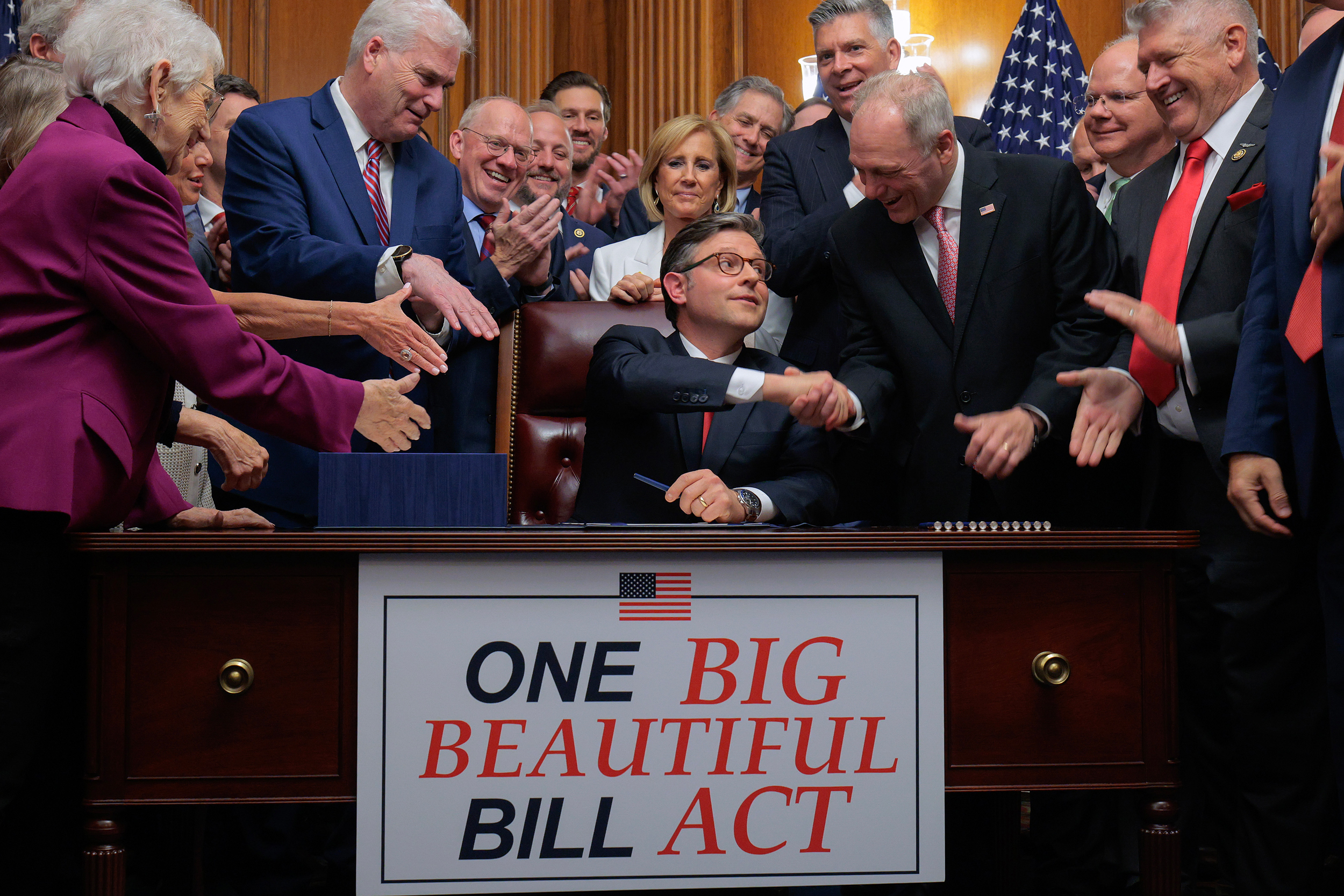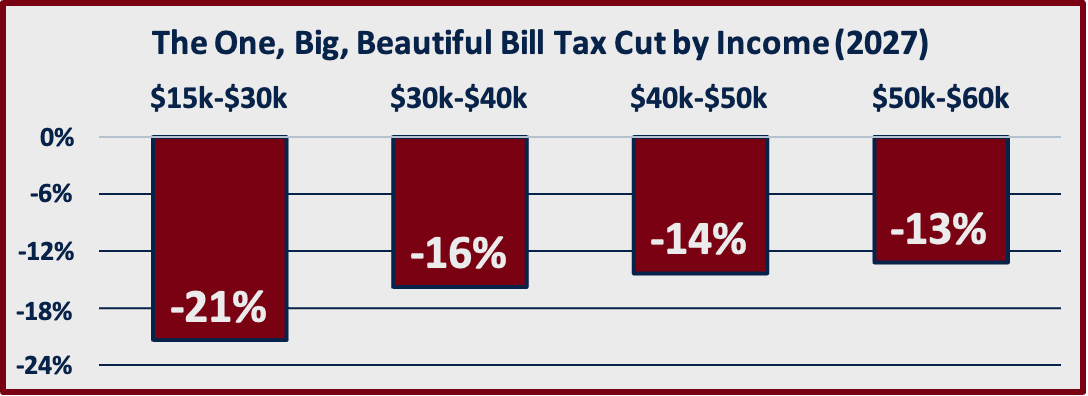
Investors, Partners, and Friends,
The "One Big Beautiful Bill Act" (OBBBA), Trump’s landmark policy objective, is now law. In this month’s Rockview Review, we break down what the Bill changes, how it was structured, and the most actionable takeaways for real estate investors and operators. We hope you find this edition of The Rockview Review valuable.
The bill cements into law what had previously been temporary: lower tax rates, wider income brackets, and a much larger standard deduction. These were all originally passed under the 2017 Tax Cuts and Jobs Act (TCJA) but were set to expire in 2026.
Why it matters: This prevents a scheduled tax hike on tens of millions of households. Families now keep more of their income, which is especially important in an inflationary environment where cost-of-living pressures remain high.

Source: US House Committee on Ways & Means
For tax years 2025 through 2029, households can deduct up to $40,000 in state and local taxes from their federal taxable income, up from the previous $10,000 cap.
Why it matters: For upper-middle-class homeowners in high-cost markets, this is a meaningful tax break.
The bill exempts up to $25,000 of tipped wages and overtime pay from federal income tax for eligible workers. This provision is set to last from 2025 through 2028.
Why it matters: This is effectively a temporary raise for millions of lower-wage workers, especially those in high-tipping sectors like hospitality across the country and in hospitality-heavy metros like Las Vegas. It increases disposable income without changing base wages, potentially supporting consumer spending and helping renters in service-heavy industries better keep up with rising costs.
Investors can now fully deduct the cost of qualifying property (including improvements, systems, and equipment) in the year it’s placed into service. This applies to both residential and commercial real estate.
Why it matters: The reintroduction of 100% bonus depreciation raises after-tax returns for real estate investments. For deals using cost segregation, the tax benefits can front-load returns and improve IRRs—especially in the first few years of ownership.
Many real estate investors hold properties in pass-through entities like LLCs or partnerships. These entities “pass through” income to the owner’s personal tax return.
Why it matters: This is a long-term win for sponsors, syndicators, and independent operators. It lowers the effective tax rate on rental income and improves the net return profile, especially in lower-leverage deals where income is a key driver of value.
The federal Opportunity Zone (“OZ”) program, which defers and reduces taxes on capital gains invested in designated areas, is now permanent.
Why it matters: This is a durable tool for tax-advantaged deployment of capital, particularly for long-term holds or development deals in emerging areas.
While the bill delivers beneficial tax treatment and increases after-tax returns for investors, it also introduces policy choices that carry longer-term risks, especially for labor markets and development pipelines.
The bill directs $170 billion toward enhanced border enforcement, expanded detention capacity, and biometric tracking infrastructure. This could slow the inflow of working-age residents, especially in construction, hospitality, and service sectors.
Why it matters: A constrained labor force, particularly in construction trades, risks pushing wages higher (inflation) and extending project timelines.
The return of 25% tariffs on building materials, including steel, aluminum, lumber, cabinetry, and appliances, raises the cost of both ground-up construction and unit renovations.
Why it matters: This makes it harder for new development and value-add deals to pencil, which is a challenge for developers, but a strength for existing asset owners as it increases replacement costs and may bolster asset values.
One Big Beautiful Bill is beneficial for real estate investors as it:
We anticipate these provisions will increase demand for real estate investment, both immediately and over the long term. These shifts all strengthen real estate’s long-term attractiveness as a stable, tax-efficient, and supply-constrained asset class.
Until next time,
Rockview Capital LLC